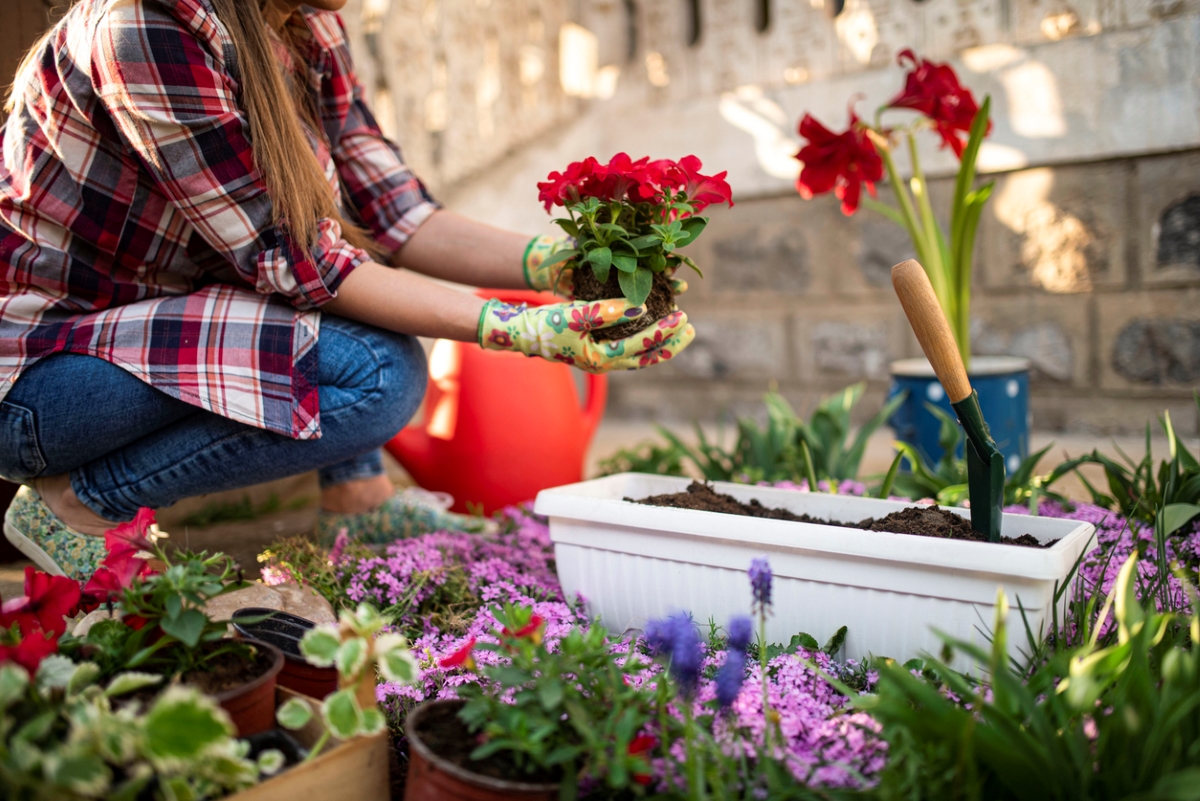

We may earn revenue from the products available on this page and participate in affiliate programs. Learn More ›
With spring here and the cold temperatures of winter behind us, many people feel inclined to breathe new life into their outdoor space. According to research by the Copernicus Climate Change Service, the “global average temperature for the last 12 months is the highest on record,” so we may find ourselves spending more time outdoors earlier in the spring, and later in the fall, than we did before. Ready to refresh your yard this season, and acclimate it to a fluctuating climate? Here are a few ways to ready your outdoor space for the months ahead.
Plant a Window Box
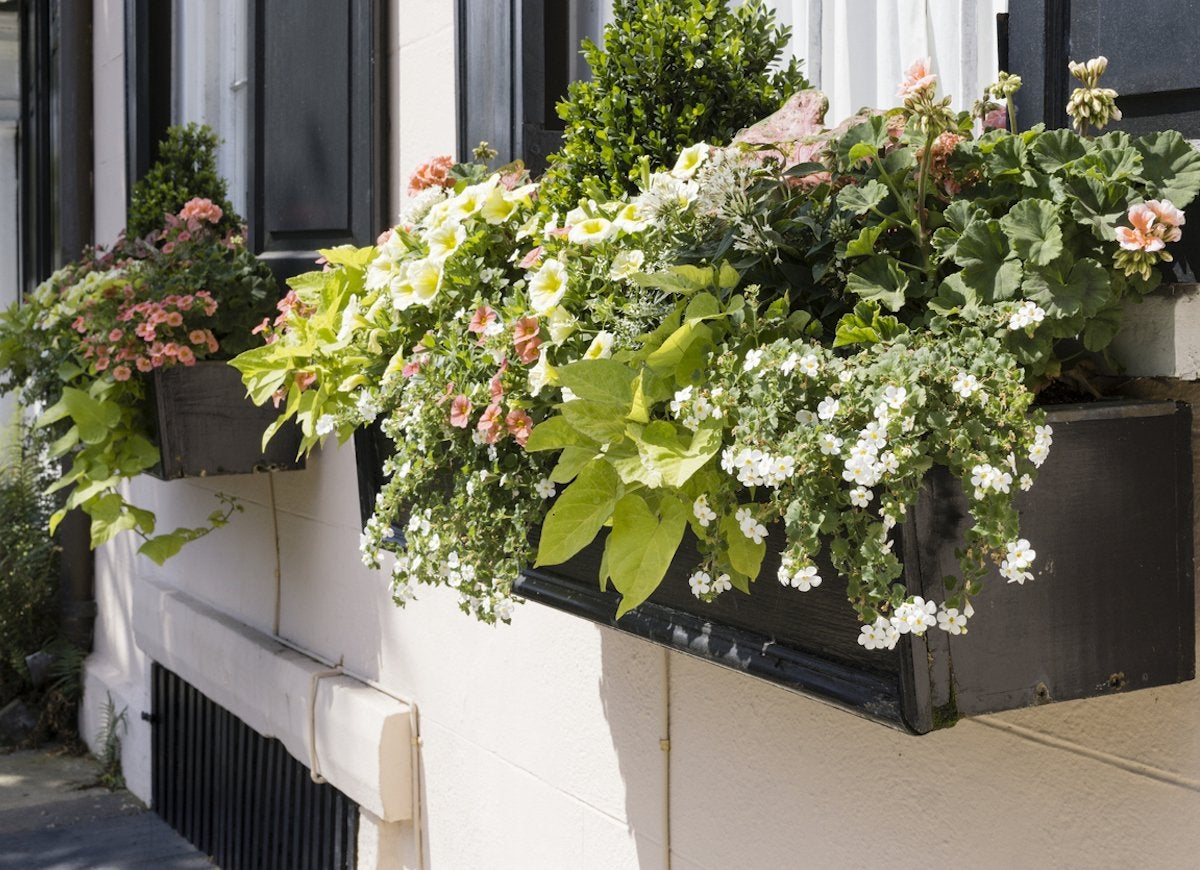
Photo: istockphoto.com
Few tasks put us in a spring mood like filling window boxes with colorful annuals. Bringing this sign of spring home is as simple as buying potting mix and plants. A planter that’s a couple inches shorter than the width of the window looks best. For a standout look, include window box plants in a variety of leaf sizes, colors, and growth habits—trailing, compact, spiky, and so on.
Ready Your Garden Tools
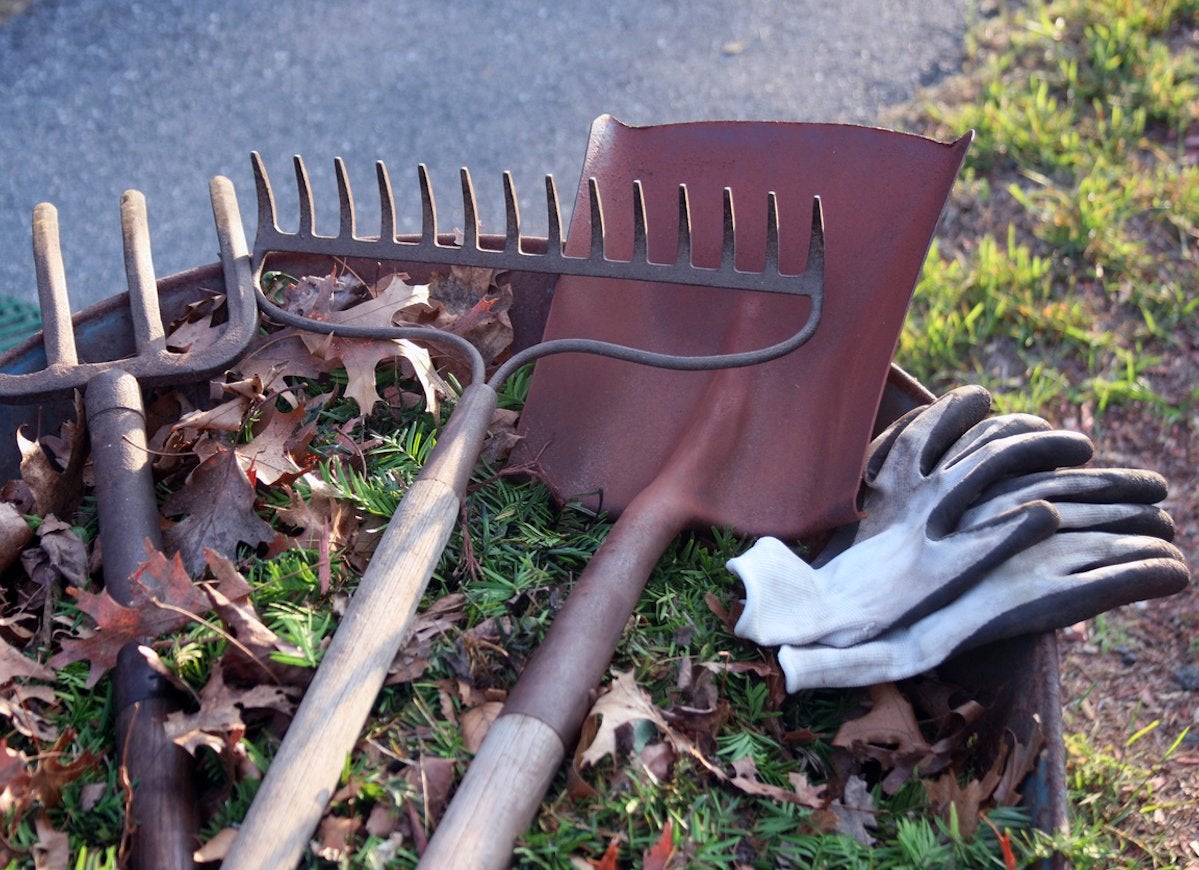
Photo: istockphoto.com
Give your gardening tools and equipment a good once-over now so that you’re ready for heavier landscaping work later in the season. Sharpen lopper blades; replace weak or broken handles; and tighten any loose nuts, bolts, or screws. Don’t forget to test the garden hose for leaks; a damaged hose can still be used once it’s repaired with a hose mender.
Test Your Soil
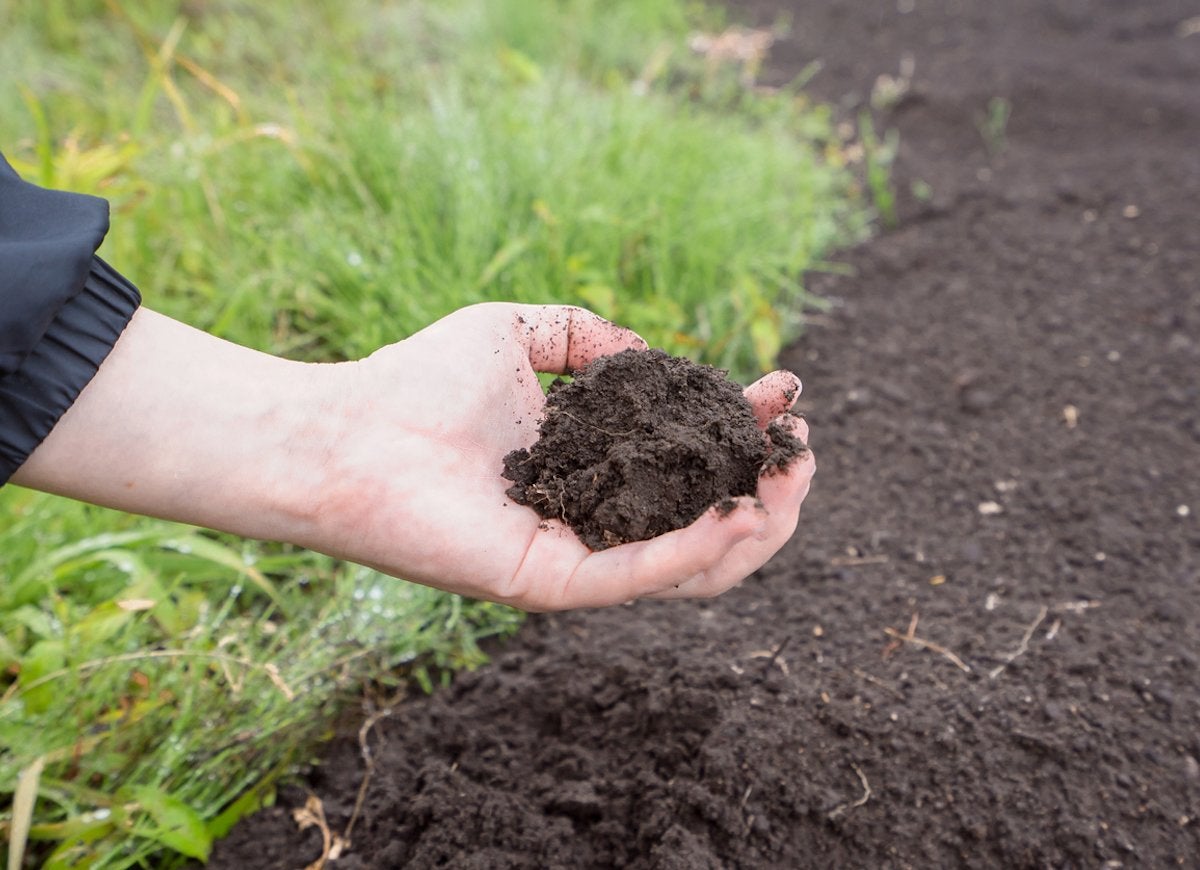
Photo: istockphoto.com
Only after you test your soil’s pH can you confidently plan which kinds of fertilizer and soil amendments your yard might need. Home centers and hardware stores carry basic soil test kits, any of which will prove fairly accurate if you follow its directions to a T. Since soil composition varies, it’s best to take samples from several places around your property.
Order Seeds, Trees, and Bushes
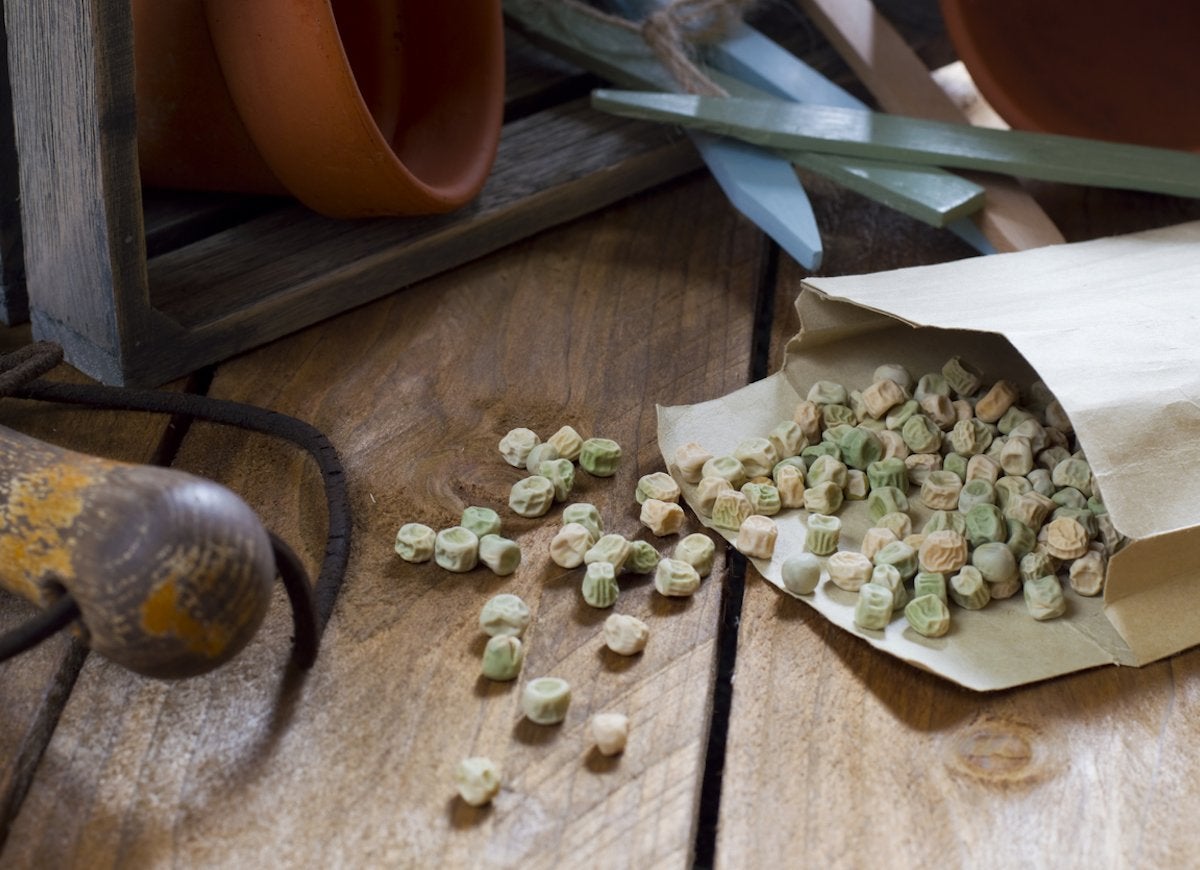
Photo: istockphoto.com
Don’t delay! Now is the time to order seeds, bushes, and trees so you can get planting once the last frost date has passed. Many online or catalog vendors will even delay mailing you your purchases until the time comes to put them in the ground.
Prep Your Deck

Photo: istockphoto.com
Before heading outdoors to entertain, clean the surface of your deck and inspect the structure for any problem areas that might need repair. Fix loose handrails, steps, and deck boards as soon as possible and, if appropriate for your decking material, add a fresh coat of deck sealer. Last but certainly not least, fire up that grill!
Clean Your Outdoor Rugs
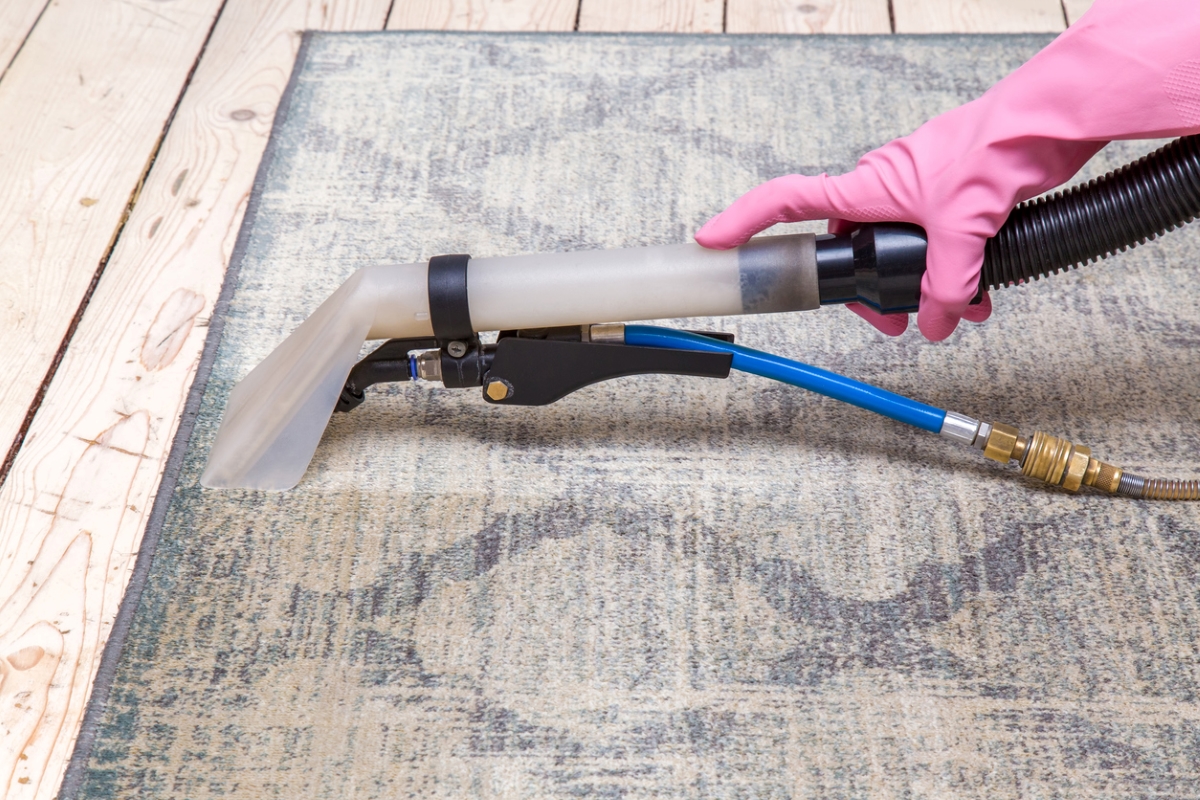
Photo: istockphoto.com
Your outdoor rugs have spent the long winter under the treads of slushy, salty boots—they deserve a little TLC. Once the weather starts to warm up, cleaning the rugs is the perfect project to tackle when you can only spare an hour or two. Get out your vacuum and garden hose and ready your rugs for another year of protecting bare feet from burning-hot deck floorboards.
Service Your Lawn Mower
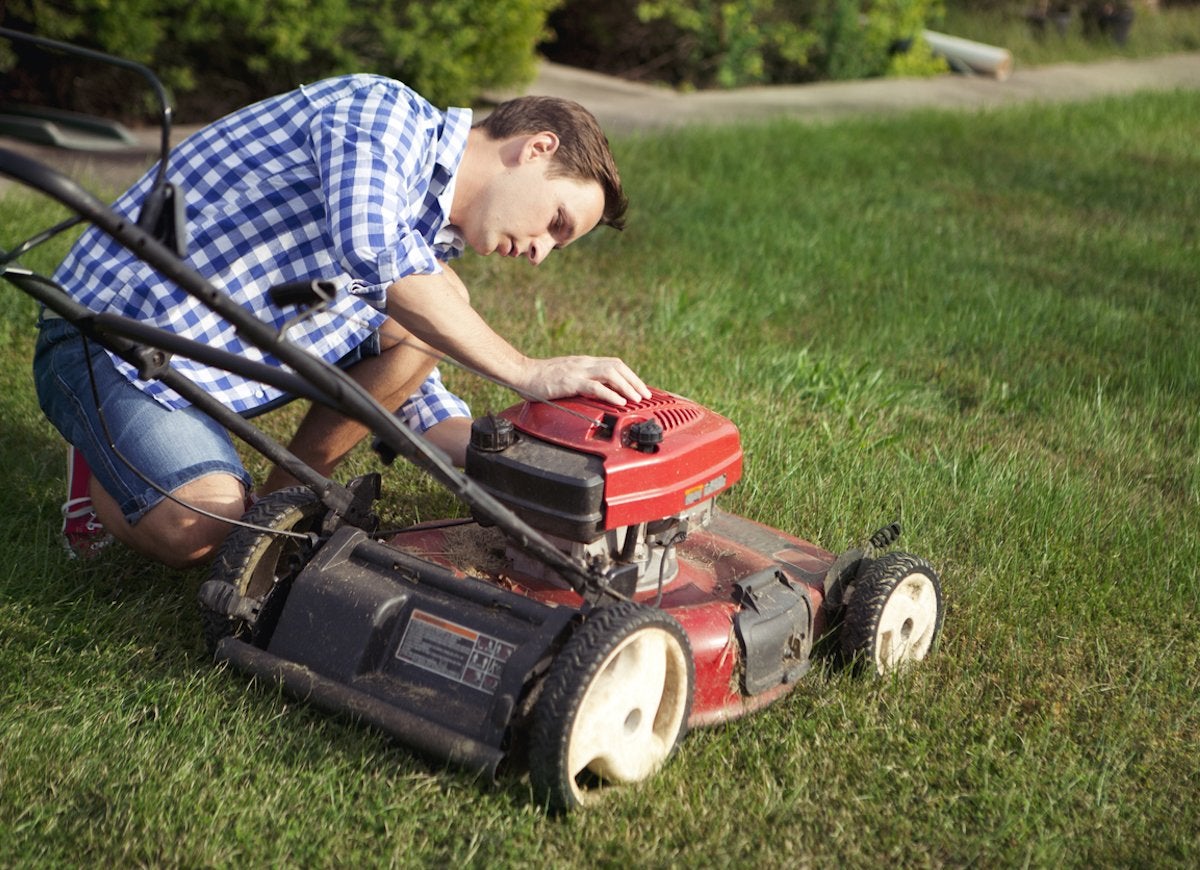
Photo: istockphoto.com
Along with spring comes the ritual of lawn mowing, so make sure you’ll be ready once the grass starts growing high. Change the lawn mower oil, replace its spark plug or plugs, and swap in a new air filter. Be sure to clean and, if necessary, sharpen the lawn mower blade.
Organize Your Garage

Photo: istockphoto.com
When the weather warms up, your family will be reaching for bikes, scooters, and other recreational items that are in your garage storage. To ensure that everything fun is easily accessible, give your garage a good clean-out, wash, and reorganization.
Seed the Lawn
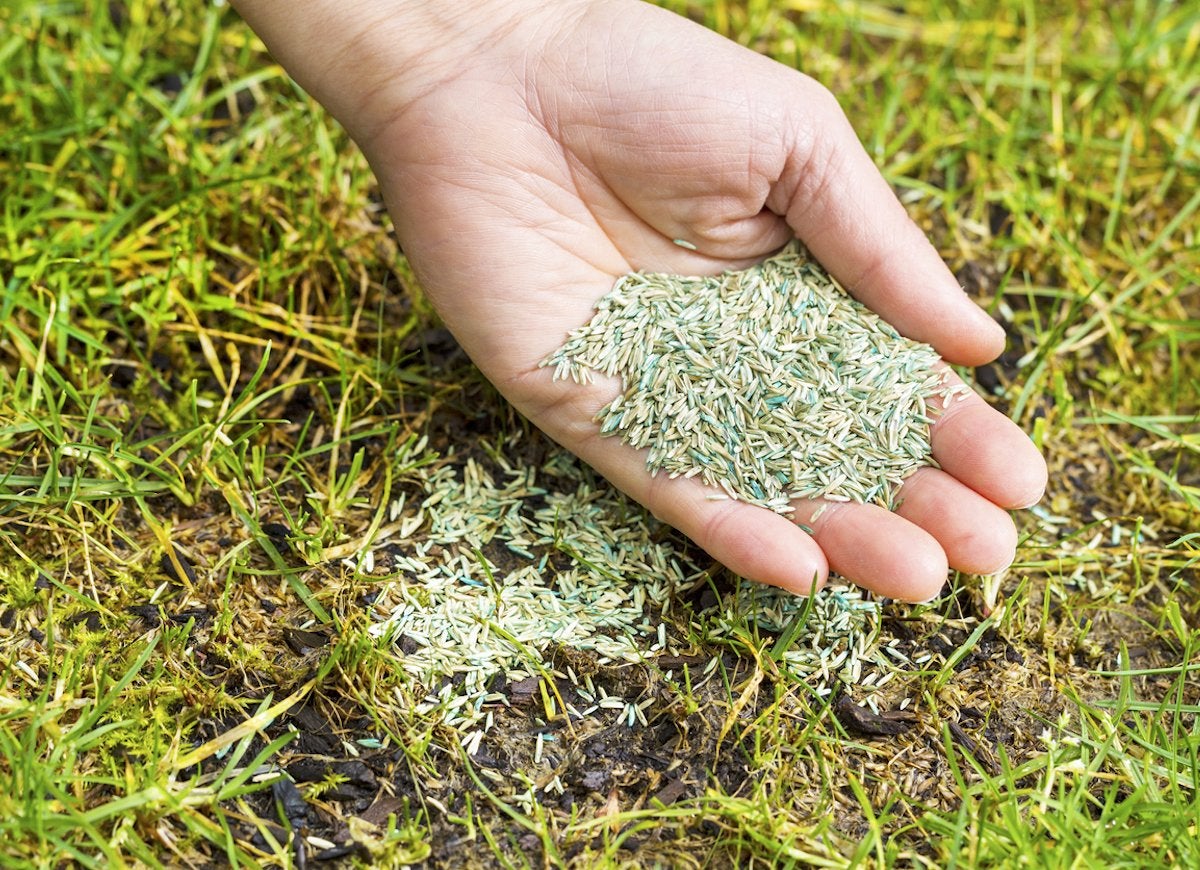
Photo: istockphoto.com
Spring is the best time to reseed warm-weather grass, while fall is the ideal time to plant cool-weather seeds. Still, if you live in colder climes, now is a good time to reseed patches of lawn that sustained damage over the winter. Keep the seeded area adequately watered, and avoid walking on the area until the new growth is well established.
Turn the Compost
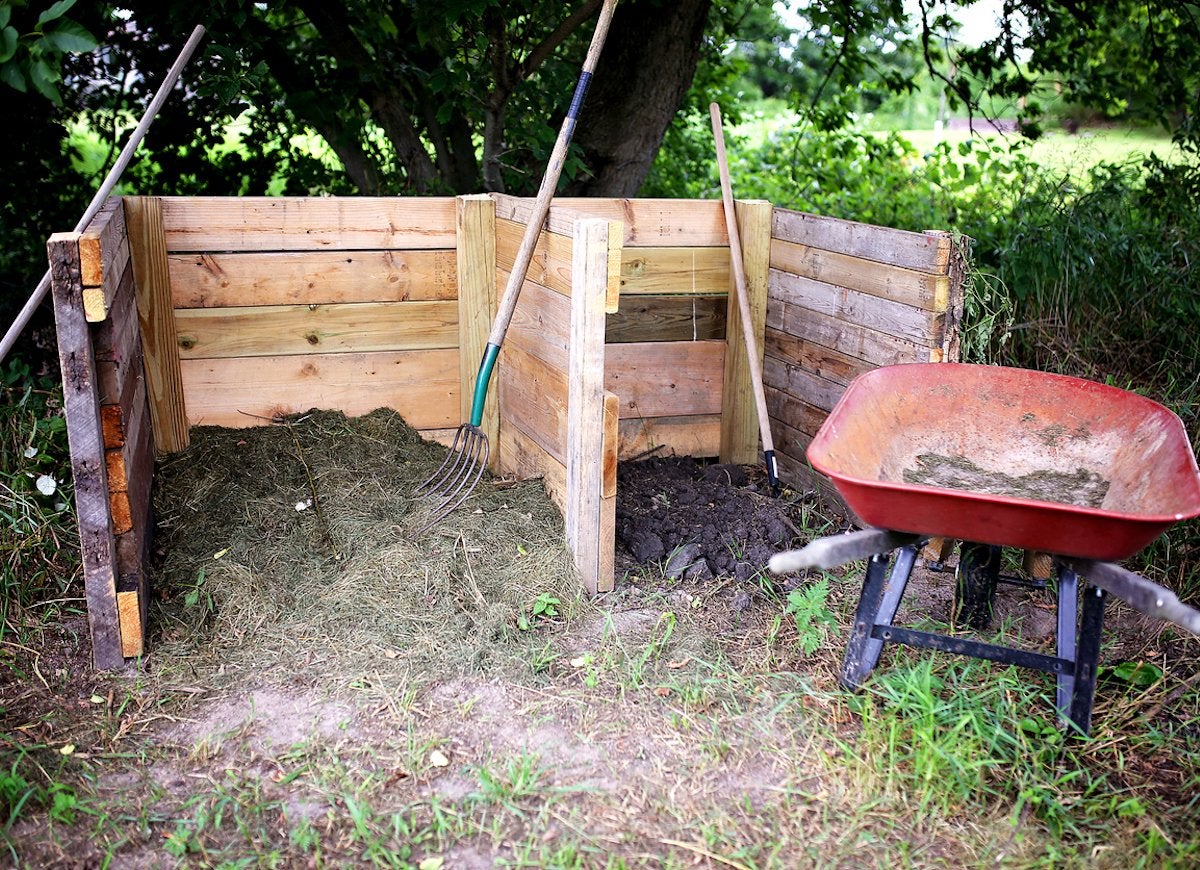
Photo: istockphoto.com
A well-maintained compost pile breaks down organic matter no matter the season, but the bacteria and critters responsible for this process are not as active during the winter. Rev up the compost system again by turning the pile to allow air and water to circulate. Some compost may have cured during the winter and be ready to sift from the pile, after which it will be added to your garden beds. A compost sifter, which is designed to sit atop a wheelbarrow, can help.
Fertilize the Lawn
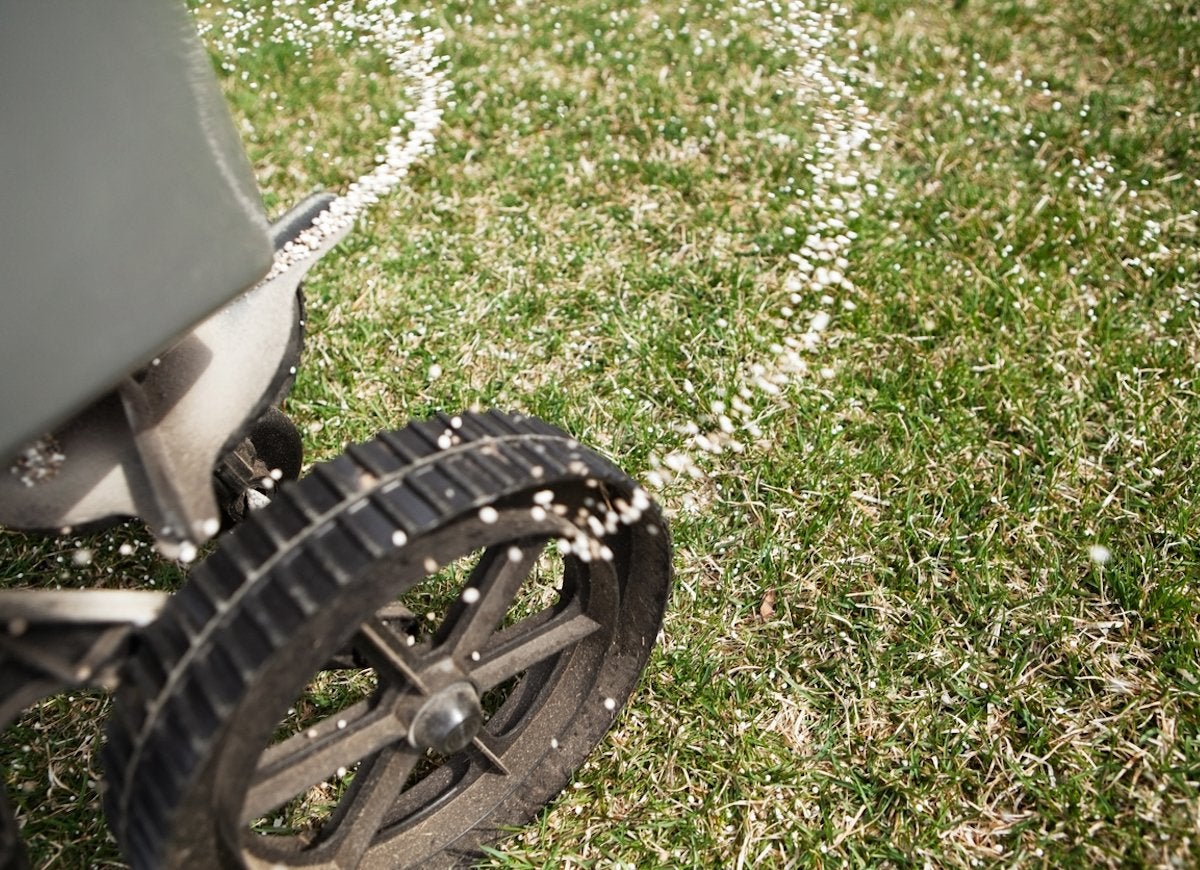
Photo: istockphoto.com
Warm-weather grass will benefit from a spring application of fertilizer. Cool-weather grass, too, may need a light application of fertilizer to look its best at this time of year. If your soil test indicates that nutrients are a little low, apply a fertilizer to bring the lawn back into a healthy balance. Pay special attention to the fertilizer numbers on the product’s packaging: Make sure you buy one that addresses your lawn’s unique needs.
Rake Your Garden Beds
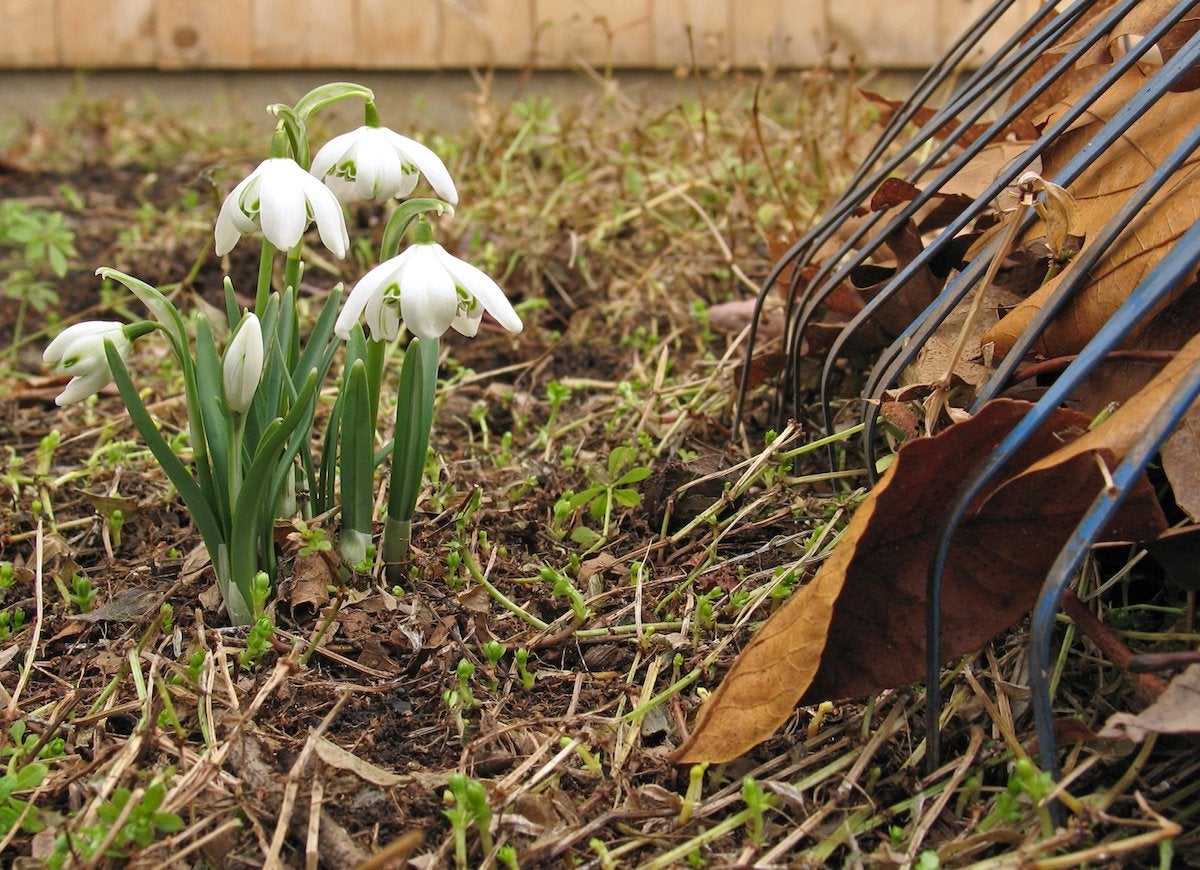
Photo: istockphoto.com
As the last of the snow melts away, the bulbs you planted in the fall are getting ready to burst forth and bloom. Rake your beds to clear away leaves or debris to expose delicate shoots to the light. Watch where you rake, however, so as not to damage the crocus, daffodils, and other early bloomers.

Our Best Advice for Beginner Gardeners
We’ll help you set up your first garden—whether that’s a few pots on your patio, a raised bed, or an in-ground plot out back—and select the right plants for your soil and region.